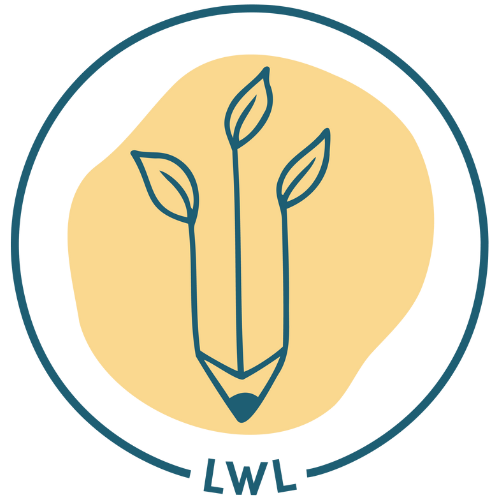Intermediate French Classes: Expanding Vocabulary & Conversation Skills
As children grow older and gain more confidence in their language abilities, they’re ready to move beyond the basics learned in LWL Education's Early French classes. Our Intermediate French classes for ages 6-9 build on the foundation established in our Beginner French classes, helping young learners expand their vocabulary, understand key grammar concepts, and begin using French in everyday interactions. These classes are the next step in building a strong foundation for future language learning and fluency.
Here’s what you can expect from our Intermediate French classes in Vancouver and Richmond, BC.
1. Gathering Vocabulary for Simple Conversations
At the Intermediate level, children move beyond basic words and phrases, expanding their vocabulary to engage in more meaningful interactions. In these classes, students gather vocabulary that will help them communicate in simple day-to-day situations, such as:
Introducing themselves
Talking about their interests
Describing objects or actions
Through guided conversations and practical scenarios, children start learning how to form sentences that express their ideas and feelings. This not only helps build confidence but also prepares them to handle everyday interactions in French.
2. Introducing Verb Conjugation
One of the key elements of our Intermediate French classes is the introduction of verb conjugation. At this stage, students begin to understand how verbs change depending on the subject and tense. This crucial grammar lesson helps children form complete sentences and talk about actions in the past, present, and future.
To make verb conjugation easier and more enjoyable, our classes use:
Cue cards: Visual aids that help students memorize verb endings for different pronouns.
Worksheets: Activities designed to reinforce the rules of verb conjugation and encourage practice.
Verb conjugation is introduced gradually, allowing children to build their understanding step by step while applying it in everyday sentences.
3. 12 Engaging Learning Themes
At LWL Education, we believe in making language learning fun and dynamic. That’s why our curriculum is based on 12 learning themes, each designed to introduce new vocabulary and grammar concepts in an engaging and memorable way. These themes cover various topics, including:
Daily routines: Vocabulary and phrases related to common activities like waking up, eating, and playing.
Family and friends: Words and sentences about relationships, family members, and social interactions.
Hobbies and interests: Introducing words for activities like sports, music, and games.
Each theme is supported by cue cards and worksheets that help children practice what they’ve learned in class. By organizing lessons around themes, we ensure that students not only learn new words and concepts but also understand how to use them in real-life situations.
4. Learning Prepositions, Adjectives, and Possessives
As students progress in their French learning journey, they start to explore more complex grammar rules. In our Intermediate French classes, we introduce important grammatical elements such as:
Prepositions: Words like "on," "under," or "next to," which help students describe the relationship between objects and places.
Adjectives: Describing words that help children talk about colors, sizes, and characteristics. Students learn to match adjectives with the nouns they modify, reinforcing sentence structure and agreement.
Possessives: Words that indicate ownership, like "my," "your," or "their," allowing students to express who owns or belongs to what.
These grammar points are introduced through fun activities that encourage active participation. By understanding how prepositions, adjectives, and possessives work, students can create more descriptive and detailed sentences in French.
5. Using Interactive Tools to Enhance Learning
At LWL Education, we understand that children learn best when they’re engaged and enjoying the process. That’s why we incorporate a variety of interactive tools into our Intermediate French classes, such as:
Cue cards: Colorful, visual aids that reinforce vocabulary and grammar points.
Worksheets: Hands-on activities that allow students to practice what they’ve learned in class.
Games and role-playing: Interactive activities that put students in real-world situations, encouraging them to use French in a fun, practical way.
These tools make language learning both enjoyable and effective, helping students retain new vocabulary and grammar rules more easily.
6. Building Confidence in French Interactions
One of the main goals of our Intermediate French classes is to help children gain confidence in using French in real-life situations. Whether they’re interacting with peers in class or practicing at home, students are encouraged to use their growing vocabulary and grammar skills to engage in simple conversations.
By focusing on practical language use, our classes give children the confidence they need to communicate in French, whether at home, in school, or in social settings.
Enroll Your Child in Intermediate French Classes at LWL Education!
If you’re looking for a way to help your child continue their French learning journey, our Intermediate French classes for ages 6-9 at LWL Education are the perfect next step. With a focus on building vocabulary, understanding grammar, and engaging in simple conversations, our program helps children develop the skills they need to succeed in French and beyond.
Contact us today to learn more about our Intermediate French classes in Vancouver and Richmond, BC, and give your child the opportunity to grow their language abilities with confidence!

